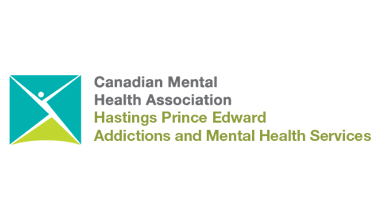
Why ‘getting lost in a book’ is so good for you, according to science
Whether you’re the reader who rips through a new book each week or the one still slogging through that bestseller your friend recommended months ago, psychologists (and their research) say your time is being well spent.
And if it’s been a while since your last date with a good book, the experts have a few reasons that might convince you to give it another go.
“One of the benefits to reading fiction is simply that it provides enjoyment and pleasure,” Melanie Green, PhD, associate professor in the department of communication at University at Buffalo, tells NBC News BETTER. “It can provide an escape from boredom or stress.”
Plus, reading has been shown to help us better understand and interact with other people, keep our brains sharp, expand our world views and grow as individuals, Green says. “Stories allow us to feel connected with others and part of something bigger than ourselves.”
Green researches the idea of “transportation” — or what makes it possible to get “lost in a book.” She says it’s more likely to happen if you’re reading a high-quality text, but “quality” in this case is subjective and something that gets determined by you. For some it’s a quick-moving plot that’s critical, while for others engaging characters or a poetic writing style is most important if you want to get lost in the storyline. And some people are just more interested in one type of story (romance, for instance) versus another (thriller), she adds.
Regardless of the specific volumes that suck you in the most, here are just some of the things that can happen when you get lost in a novel.
STORIES ABOUT OTHER PEOPLE TEACH US TO BE THE TYPES OF PEOPLE WE WANT TO BE
Reading makes us think and feel in new and different ways, explains Keith Oatley, PhD, professor emeritus in the department of applied psychology and human development at University of Toronto. “You give up some of your own habits and thoughts, and you take on your own idea of being a different person in circumstances that you might otherwise never had been in.”
Back in 2009, Oatley and his colleagues found that after reading one of two different versions of the same story — one an original piece of fiction and the other a retelling of the same story written in a non-fiction style — participants who read fiction changed in their personality traits more than those who read the non-fiction version of the story, and reported feeling higher levels of emotions.
Objectively, Oatley and his colleagues haven’t measured whether these changes might be labeled as “good” or “positive,” but he says to think about it in terms of personal growth akin to how we want kids to grow and develop in their own ways(not because society is telling them to be one person or another).
“It is very important in the social world to understand others, to understand ourselves, and not just get stuck,” he says.
READING HELPS PROVIDE THAT SENSE OF BELONGING THAT ALL HUMANS NEED
Reading can give us a sense of belongingness that we all instinctively want as human beings, according to Green.
Researchers at the University at Buffalo showed in an experiment that reading actually satisfies that need for human connection because it can mimic what we feel during real social interactions. A group of 140 undergraduate students were asked to read either “Twilight” or “Harry Potter and the Sorcerer’s Stone” for a half-hour. Afterward the students reported (psychologically-speaking) becoming part of the characters’ worlds during that time and having some of the same feelings of satisfaction and happiness that we get from real-world social interactions.
“Social connection is a strong, human need,” the study’s author Shira Gabriel, PhD, associate professor of psychology at UB, said in a press release shortly after the research was published. “Anytime we feel connected to others, we feel good in general and feel good about our lives.”
IT BOLSTERS ALL SORTS OF SOCIAL SKILLS
Reading fiction also helps us better understand, connect with and interact with others in the real world (after we put that book down).
“We get to enter the minds of these other people. And in doing that we understand other people better,” Oatley says. Research from he and his colleagues showed that people who reported reading the most fiction scored higher on both empathy tests and social ability tests.
If you can identify with a character in some way, you actually get to lead a different life (temporarily and, of course, in a limited way), says Oatley. Multiple studies have replicated these findings, Oatley says. And data suggests the same area of the brain actually gets fired up when people read and comprehend fictional stories, as gets activated when we’re in the process of understanding other people.
Think of learning how to fly an airplane by using a flight simulator in addition to flying an actual plane. You get to encounter a lot of different scenarios where you’re completely safe, but you can learn a lot about what to do in an emergency, unusual weather conditions, and more. “Fiction is the mind’s flight simulator,” Oatley says.
And importantly, the research shows it’s reading fiction that improves empathy and not the other way around, Oatley adds. (It isn’t that people who are empathetic happen to prefer to read more.)
READING IS GOOD FOR OUR BRAINS AND MAY EVEN HELP US LIVE LONGER
We’ve all heard from countless grade-school teachers that reading improves our vocabulary. But neuroscience research shows it’s good for other cognitive skills, too, by stimulating the neural networks in the brain that improve our social cognition and conceptual processing of abstract content. And evidence suggests that may have measurable benefits in terms of health.
“Reading, by engaging the brain, may keep the brain active enough to prevent cognitive decline that is associated with a variety of diseases associated with earlier mortality,” explains Avni Bavishi, an MD candidate at the Feinberg School of Medicine at Northwestern University.
A 2013 study found that people who reported reading and doing other similarly cognitively stimulating activities throughout their lives had less cognitive decline compared with people who didn’t read or engage in other such stimulating activities as much. And a subsequent study by Bavishi and colleagues showed that people who report reading more actually live longeron average compared with individuals who didn’t report reading.
GETTING LOST IN A GOOD BOOK PROVIDES THE GOOD KIND OF ESCAPE
And finally, if you need a break from the daily grind or everyday stressors, reading can take your mind away from what’s worrying you — in a good way — by letting you temporarily escape, Green says. “People who are absorbed in a story world aren’t ruminating on their own personal concerns.”
Studies show that several types of media, from books to TV shows to music, can definitely help with mood management.
Of course, ignoring a problem in the real world isn’t the answer, but spending too much time thinking about things that are out of your control (like current events, a pending job offer or family squabbles) isn’t good either, Green says. So the next time you’re feeling anxious or stressed, use it as an excuse to dust off the novel on your bedside table.
- Author: Sarah DiGiulio
- Article Source: NBC News








